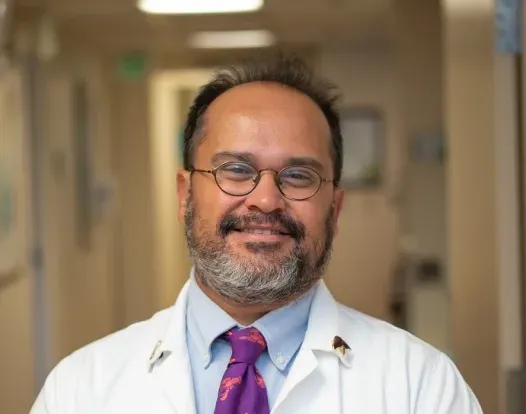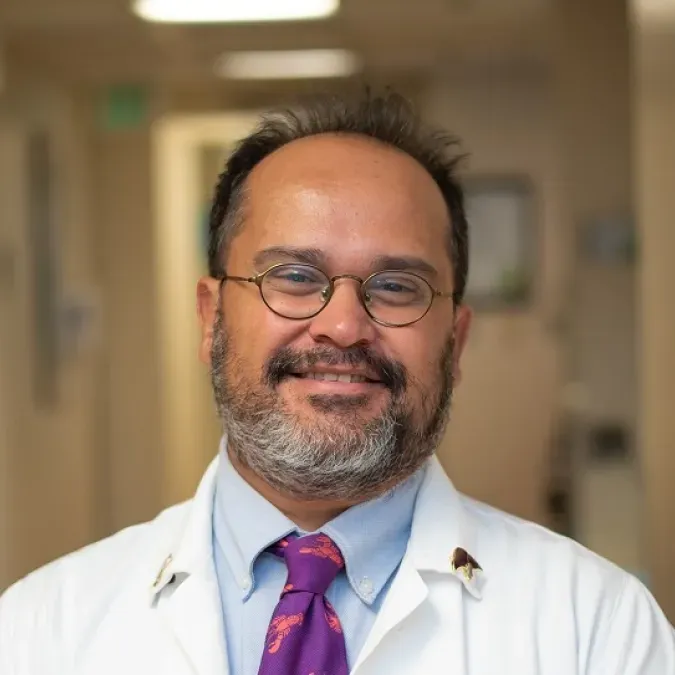These researchers have dedicated their careers to finding new treatments and cures for people with cancer.


Giving Hope to Patients
An older patient with cholangiocarcinoma sets a goal: Be healthy enough to care for his grandchild. As his grandson’s primary caretaker, reaching optimal health while in treatment for biliary cancer matters deeply to this patient and his family.
Biliary cancers are uncommon but aggressive. Most patients are diagnosed after age 70 and discover there may be limited options for their treatment.
“Because of the dire need for better curative therapies, I have chosen to work in the field of biliary cancers,” says Dr. Rocha, division head of surgical oncology at Oregon Health & Science University (OHSU) and physician-in-chief of the Knight Cancer Institute. “Most patients are not candidates to have their bile duct cancer removed due to advanced disease, and even those who undergo successful surgery face a significant risk of relapse.”
Dr. Rocha has spent his career working to improve the care of patients with biliary cancers, which are understudied due to their rarity. He’s also a specialist in other liver and pancreatic cancers.
Early Research Funding Leads to Long-Term Discoveries
Using a Conquer Cancer YIA, Dr. Rocha built a bile bank to study and store fluid from patients with benign and malignant tumors of the liver and bile ducts. Researchers can use the bile bank to identify proteins and molecule markers from the most central source of biliary cancers. More knowledge around the origins of cancer types that are difficult to treat helps doctors develop better care for patients.
“This bile bank is an invaluable resource that can be used for future studies of biomarker discovery and validation and perhaps surveillance strategies for cancer prevention,” says Dr. Rocha. For patients, this means earlier disease detection, better surgical treatments, and stronger education around risk reduction.
After publishing the results of the first bile biomarker identified from the study, Dr. Rocha’s research has also expanded to help patients with precursor lesions that can lead to early stages of bile duct cancer.
Drawing on knowledge gained from his YIA project, Dr. Rocha and colleagues launched a clinical trial to treat patients with intrahepatic cholangiocarcinoma. The trial is testing the efficacy of an emerging combination chemotherapy that may reduce recurrence and improve outcomes for patients with the disease.
Giving Patients Time
Every research goal Dr. Rocha achieves is one step toward progress for his patients. Today, the grandfather inspired by his family to conquer cancer is doing well.
“Given the significant advances in the field, he is currently spending quality time with his wife and grandson,” says Dr. Rocha.

